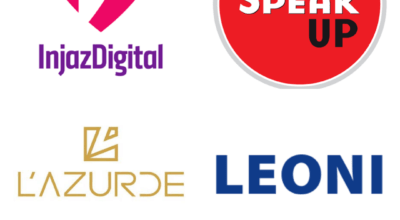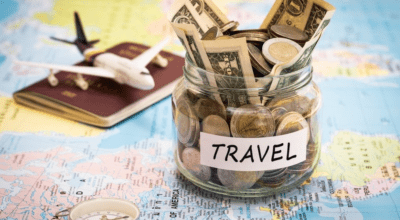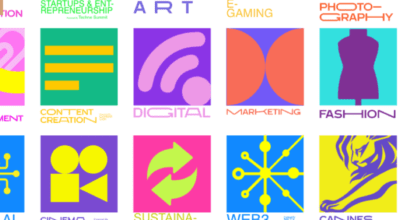Why should we care about who influencers are or what they do? Maybe we like their work or admire who we perceive them to be on social media, or we could be interested in selling stuff through advertising collaborations with them.
There isn’t a shortage of articles on ‘influencer marketing,’ which is a fairly recent business term that explicitly means marketing products, services, or events through influencers. These articles usually focus on why influencer marketing is almost always a good idea for your business and how it could be properly executed. There are also articles on how to become an influencer and attract collaborations with brands yourself.
In this article, however, we’ve decided to observe and explore – like flies on the wall- what’s missing from all the articles out there: how might this rapidly emerging and yet inscrutable phenomenon be affecting us all? But before trying to answer that question, we talked to some of Egypt’s major influencers to understand what the word means to them and see the influencer marketing craze through their perspective.
We also direct the spotlight onto Instagram since it is, because of its nature and extreme popularity nowadays, the most relevant platform to this budding marketing tool. Golablly, unspeakable amounts of money are annually pumped into marketing through influencers (because it’s evidently effective), which should be enough of a reason for us to pay attention to this phenomenon.
What the World Influencer Stands For?
“In Egypt specifically, the word ‘influencer’ has a bad reputation. Because the original meaning of the word describes people who have the ability to influence other people and be a role model for them. But here, anyone who became famous through social media is an influencer,” said Hesham Afifi, a popular content creator, director and musician with more than 60,000 followers on Instagram and over 300,000 YouTube subscribers.
Ahmed Abi, a sought-after photographer and content creator, agrees with Afifi’s statement. Abi is closing in on 50,000 followers on Instagram and could be quite commonly found labeled as an influencer in most marketing agencies in Egypt. He, however, disagrees with that label. In fact, when we first contacted him, he thought he wouldn’t be a good fit for this article since he doesn’t consider himself an influencer. When collaborating with brands, Abi says he doesn’t aim for the reach, but rather for doing something he loves and expressing himself. “I mainly choose the gigs that deal with me as an artist, not as an influencer,” he explained, clearly refusing what that label usually entails.
View this post on Instagram
An influencer is generally a person who influences other people. In the context of marketing, however, the Oxford Dictionary defines the word influencer as “Someone with the ability to influence potential buyers of a product or service by promoting or recommending the items on social media.”
View this post on Instagram
Zayneb Azzam, a model and a brand ambassador with over 200,000 followers on Instagram, acknowledges the marketing power attached to the word. She told us, “I recognize the word as; one with strength in marketing their own brand and skills in exposing products useful to the public…” Other influencers like Naureen Youssef, a famed Instagram star and a self-proclaimed writer, public speaker, marketer and model, described the word in a general manner, stating it’s “someone with a cause reflecting positively on our society in their own artistic way.”
Disagreement on the meaning of such a broad word, even among those who are popular enough to be labeled as influencers, is understandable. But the massive force and speed with which Influencer marketing is moving and growing makes it hard not to attach the seemingly prevailing advertising aspect of it.
Influencers’ Relationship to Us
Disregarding the possible, but mostly easily detectable, fakery of popularity on social media accounts, how do normal human beings become influencers? What determines whether or not they have the power of influencing in that marketing sense? Well, we could assume that a substantial following is the deciding factor. When met with this assumption, Abi seemed upset and mentioned a talented artist he came across in a Netflix workshop who was there for the quality of his work. He only had 300 followers!
But how do influencers garner this follower-ship? It’s difficult to generalize; influencers could be artists, comedians, videographers, models, fashion stylists, life coaches, musicians, vloggers or even dentists! If you name a job title, you will most definitely find an influencer who claims it.
View this post on Instagram
What really matters is what the influencer does on their Instagram account and how we perceive them through it. Their content’s appeal might stem from how beautiful, inspiring, exciting or entertaining we find it. Maybe its appeal is that it makes us aspirational, or maybe we simply find it useful. This appealing content coupled with an appropriate frequency of posting and a good strategy of what to post when is the presumed baseline for a successful influencer, but not all influencers start out planning to be one. When we asked Laila Youssef, a fashion stylist and marketeer with more than 116,000 Instagrammers following her, she admitted that her becoming an influencer was not the result of careful planning. She simply started uploading her photo shoots and then it all started happening.
In any case, it’s important we ask ourselves this: would we consider following a social media celebrity because they advertise or recommend products and services to us every now and then? Or do we follow them because we’re interested in their work or perhaps enjoy the ‘personal’ side of their Instagram accounts but the product and brand placements they post are completely secondary, if not irrelevant, to why we follow them?
Advertisements Will Always Find a Way (That You Trust)
“It’s important that you truly show your character. Your followers will relate to it and get attached to it and then start imitating you in certain things,” said Laila Youssef when asked about how she perceives the extent of her influence. “I try to post about my everyday life and, while doing so, show a realistic version of it and not portray myself as a perfect role model,” she added.
View this post on Instagram
Shahan Terzibashian, one half of the prominent Cairo Foodie Couple that he shares with his wife Melisse Horhoryan, weighed in saying, “If the influencer believes in the brand then he will commit to it and show it in a ‘natural’ environment. For example; seeing a dress on a model on an online shopping website is not the same as seeing it on an influencer. Or when you see a smartphone camera ad that is not the same as when you see it with its brand ambassadors that are actually using it on a daily basis.” And this is certainly a part of the charm of influencer marketing. Terzibashian goes even further, claiming that influencer marketing is the “future of advertising.”
Omar Bakry, someone who would be labeled by marketing firms as a micro-influencer, is an up and coming visual artist with over 1,000 followers on Instagram. He thinks that there’s nothing wrong with using his artistic vision to help market brands’ products. “This is how you make a name for yourself,” he said confidently. “I wouldn’t promote something that goes against my religious beliefs. It also has to be something I think is suitable for our society,” he added.
We could look at a person’s Instagram and each of us could judge for themselves how realistic it is. But it goes without saying that no matter what images anyone posts on their Instagram account, it will never be a reflection of their real life. Once we hold a camera and decide what to shoot and how, we’re already biased. What’s more commonly found are Instagram accounts that only feel personal and/or reflect a version of one’s life in a gush of boasts.
According to a 2015 report by Nielsen, a global information, data and measurement company, this kind of advertising is among the most trusted worldwide. It feels personal and relatable and, especially if you’re targeting a young audience, is substantially more effective in getting companies more returns on the money they invest and increasing their brand’s awareness. The influencers we trust have the power to make us trust the brands they work with.
Naureen Youssef also told us: “I believe my followers somehow trust me and have faith in me. So, if this gift is used badly, then it has a negative impact on those who trust us.”
None of the influencers we talked to expressed explicit opposition to utilizing the trust and faith their followers have in them, and how credible they perceive them, in order to help sell a product or a service they didn’t participate in creating.
All of them, however, had general limits and reservations.
Does Influencer Marketing Have a Dark Side?
Looking at the current state of influencer marketing and gazing into the direction it might be headed in the future is worrying.
Afifi pointed out that, “Companies are still experimenting with social media and its effect on its users, we still don’t have, as people in the marketing field say, a ‘bible’ to help us know what works and what doesn’t. That’s why I think it’d be quite difficult to study or have solid expectations about the effect of influencer marketing on consumers’ behavior.”
The scanty research that’s been conducted suggests that feeling a sense of conformity, belonging and closeness to our favorite influencers as we’re being frequently exposed to their posts is in part behind the success of influencer marketing.
“I once got invited to an event and when I told one of the organizers that I don’t post about my social life, they apologized, said they didn’t know that, and uninvited me,” said Abi in a tone of voice that resembled what a shrug would look like. “There are people who are using this whole influencer vibe in a cheap way that takes advantage of people,” he continued. “Sometimes I wonder, like, what are you even adding or presenting that deserves to be seen? What is it that you do?!”
Abi, further expressed his disapproval of being told to upload ‘thank you’ stories of kits that contain giveaways from brands or what captions or hashtags to write. “It has to be on my own terms and I’ll only do it when it feels natural to me. It has to feel like me.”
Afifi believes his followers are smart enough to make their own decisions and call him out if he’s doing something that doesn’t go well with his persona or seems artificial and requested.
We might feel at ease towards influencers marketing products on their Instagram, but should we, especially in the absence of regulations that protect us from getting duped?
Instagram’s branding tool could be considered as one of those regulations. It basically gives influencers the option to say: ‘this is a paid partnership with company XYZ’. This will appear on top of the post. Unfortunately, especially here in Egypt, you could find many campaigns where the major influencers chose not to brand their paid posts, but instead leave it to our imagination to decide whether it was a paid partnership or not.
View this post on Instagram
Finally, you might have not heard about Lil Miquela, but she is a fictional character that manifests the accumulating worry that exists around this subject. Lil Miquela is a virtual influencer created by a company named Brud. This company creates computer-generated influencers driven by AI technology. Lil Miquela even got hacked once, but it turned out to be a fake publicity stunt staged by Brud to generate more publicity. She has quite a decent number of followers (1.4 million) and so is a successful influencer in a way.
This might seem like a shocking joke but it is true. A couple of months ago, it has been reported that Brud managed to raise a stunning $6 million from Silicon Valley alone. And a lot of dissidents claim that this is the beginning of the end for major influencers.




























